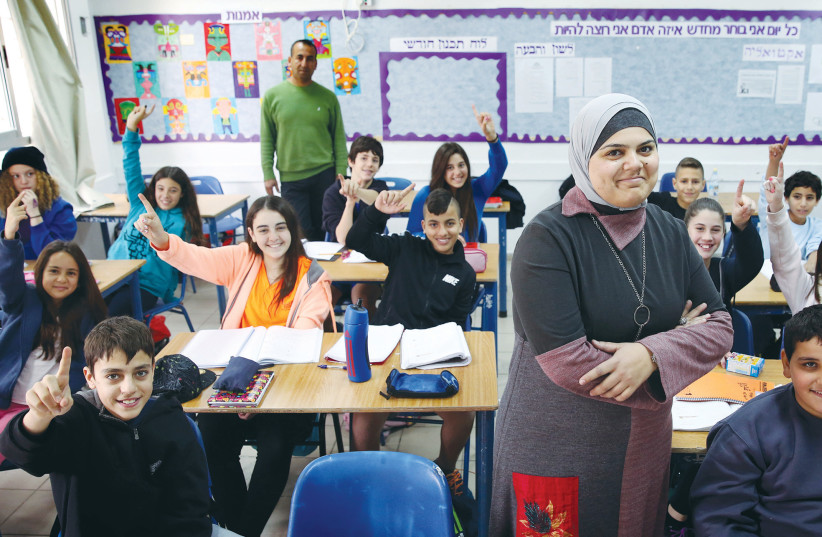Israel’s Central Bureau of Statistics released results of a 2020 survey on the Hebrew language level among Israel’s population, finding that 47% of Arab-Israeli respondents said they speak between “medium” and “almost zero” Hebrew.
The survey primarily tracked Hebrew proficiency among Jewish-Israeli men and women compared to Arab-Israeli men and women. Further findings included that 53% of Arabs rated their Hebrew as “good” to “very good,” compared to 91% of Jewish-Israelis. While Jewish men and women had nearly identical levels of mastery, disparities across gender were more pronounced in Arab populations, as 66% of Arab men said their Hebrew was good to very good, compared to just 41% of Arab women.
Additionally, only 8% of Arab men said they spoke or understood “little” to “almost zero” Hebrew – compared to 25% of women. These differences are more pronounced among senior citizens, as 46% of Arabs aged 65 or older said they cannot read or write in Hebrew, compared to just 8% to 9% of Jewish respondents. Some 30% of Arab Israelis aged 65 or older cannot speak Hebrew, compared to a mere 2% of Jewish respondents.
A total of 93% of Jewish Israelis speak good to very good Hebrew, though 8% speak little to no Hebrew.

Last October, a NIS 9 billion initiative to reduce gaps in education among Arab Israelis was launched.
The agreements will introduce a comprehensive program to improve Hebrew literacy, develop more relevant educational content, promote after-school education, reduce dropout rates, and more.
The proposal also pledged NIS 2.4 billion for the construction of classrooms in Arab regions, which will provide over 3,500 classrooms and kindergartens, and an additional NIS 7,000 investment per Arab student.
